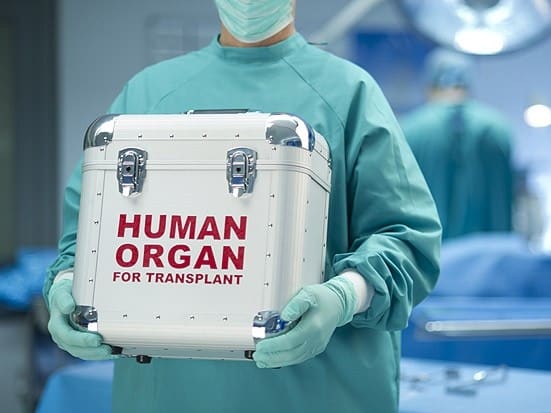
 Should we be paying for organ donations?
Should we be paying for organ donations?
New Zealand hopes to increase the number of donors by paying for organ donations. New Zealand has passed a bill to compensate those who donate their organs, a move aimed at cutting down on the number of people waiting for organs. The country has seen a consistent and critical shortage of organ donors. The new law will streamline the process for compensation and see live organ donors paid up to 100 per cent of their income lost during the recovery period from surgery, which can be up to 12 weeks.
“For the more than more than 700 kidney patients currently on a transplant waiting list that grows by hundred each year, this legislation will make a huge difference,” says Kidney Health New Zealand chief executive, Max Reid. “Until now the level of financial assistance (based on the sickness benefit) has been insufficient to cover even an average mortgage repayment, and the process required to access that support both cumbersome and demeaning.”
The new law raises the question of whether it’s time for Canada to rethink its organ donor policy, too, as it also languishes with a poor organ donor rate when compared to other OECD countries.
Opinions on the topic are mixed.
Currently, each province sets its own policy concerning organ donation, with the prevailing position being that a commercial exchange in organs is prohibited. Yet, at the same time, many provinces have cobbled together programs to at least partially reimburse donors for expenses incurred due to donation such as travel and accommodation as well as subsidies for lost income after surgery. Ontario, for example, has both a Program for Reimbursing Expenses of Living Organ Donors (PRELOD) and the Transplant Patient Expense Reimbursement Program.
The result is a patchwork of assistance that University of Alberta law professor Timothy Caulfield thinks needs a legislative upgrade.
“I believe the approach to compensation remains confused,” says Caulfield, who holds a chair in Health Law and Policy at the U of A. “What is defined as illegal compensation remains vague and, technically, very broad. In most provinces, anything that could be framed as valuable consideration is banned – this doesn’t leave a lot of wiggle room, even if you want to provide modest, non-monetary compensation.”
Critics of Canada’s current approach see a potential savings in healthcare dollars through opening up the donor market. More kidney donors means fewer people spending years and years on dialysis, an expensive procedure. One study in the United States (where direct payment for live organ donation is also prohibited) projected that paying kidney donors as much as $45,000 would still result in huge Medicare savings –up to $46 billion per year.
A similar cost-benefit analysis applies in Canada, and supporters are keen to point out that when polled, a majority of Canadians have said that they would consider donating a kidney if it came with at least $10,000 in compensation. Such a strategy “would increase the number of transplants performed among wait-listed dialysis patients by five per cent, would be less costly and more effective than the current organ donation system,” said Lianne Barnish of the University of Calgary, in conversation with the CBC, and co-author of a 2013 paper on the topic.
But efforts to open up the market for organ donors will invariably be met with a gauntlet of ethical challenges. For one, the commodification of body parts (organs, blood, sperm or eggs, for example) is thought to go against the grain of Canadian values and norms; for another, detractors believe such a change would invite exploitation of those citizens most in need of the money.
“Selling organs for transplant converts social or even familial relationships to market relationships,” says ethicist Margaret Somerville, founding director of the Centre for Medicine, Ethics and Law at McGill University, writing for the Globe and Mail. Somerville contends that payment for organs changes the moral landscape, in that some (the poor) will end up being treated unequally. “In general, only the poor sell and, with private schemes, only the rich can buy,” says Somerville. “This means one group of people are subject to all the burdens and another group receives all the benefits, in short, burdens and benefits are not equitably distributed.”
Caulfield disagrees, pointing out that the moral distaste linked to commodification is “quietly amorphous” and doesn’t link up with current public opinion on the topic.
“What is the specific harm that we seek to avoid [through commodification]?” says Caulfield, who’d rather see a more thorough system of incentives for organ donation across the provinces and territories.
Leave a Reply
You must be logged in to post a comment.





 Share
Share Tweet
Tweet Share
Share




Comment